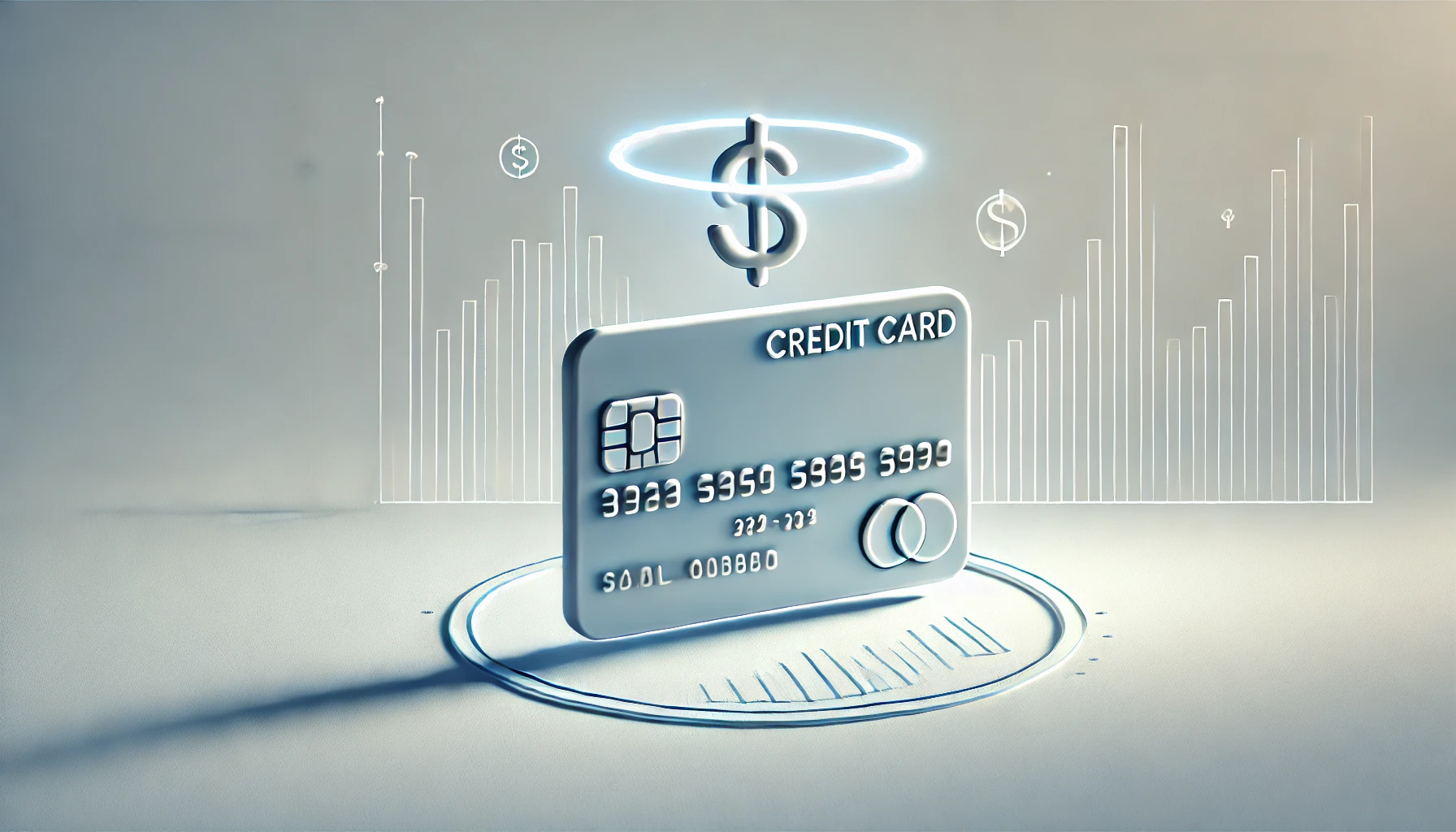Business
6 Ways to Use Credit Cards Responsibly and Stay Debt Free

- /home/u433845138/domains/buzzark.co.uk/public_html/wp-content/plugins/mvp-social-buttons/mvp-social-buttons.php on line 27
https://buzzark.co.uk/wp-content/uploads/2025/01/6-Ways-to-Use-Credit-Cards-Responsibly-and-Stay-Debt-Free-1000x600.webp&description=6 Ways to Use Credit Cards Responsibly and Stay Debt Free', 'pinterestShare', 'width=750,height=350'); return false;" title="Pin This Post">
- Share
- Tweet /home/u433845138/domains/buzzark.co.uk/public_html/wp-content/plugins/mvp-social-buttons/mvp-social-buttons.php on line 72
https://buzzark.co.uk/wp-content/uploads/2025/01/6-Ways-to-Use-Credit-Cards-Responsibly-and-Stay-Debt-Free-1000x600.webp&description=6 Ways to Use Credit Cards Responsibly and Stay Debt Free', 'pinterestShare', 'width=750,height=350'); return false;" title="Pin This Post">
Did you know that credit cards can be your best financial tool or your worst enemy? It all comes down to how you use them. Credit cards provide convenience, security, and rewards, but they can also trap you in a cycle of debt if you’re not careful.
The good news?
It’s entirely possible to use credit cards responsibly and stay debt-free with a few smart strategies. Let’s explore six powerful ways to take control of your credit cards and keep your finances on track.
How to Use Credit Cards Responsibly and Stay Debt Free?
Here is how to use credit cards and stay debt-free:
1. Pay Off Your Balance in Full Every Month
Interest charges are the number one reason people fall into credit card debt. The best way to avoid this is by paying your balance in full before the due date every single month.
When you carry a balance, you’re essentially borrowing money at an often high interest rate, which can quickly snowball into a larger problem.
Treat your credit card like cash. If you wouldn’t pay for something outright with the money in your bank account, don’t put it on your credit card. This habit not only protects you from interest but also reinforces smart spending behaviors.
Plus, paying in full every month positively impacts your credit score, as it demonstrates that you’re a reliable borrower.
If paying in full feels overwhelming, start by identifying areas to cut unnecessary expenses and redirect those savings to your credit card bill. The discipline will pay off over time, and you’ll enjoy the benefits of credit without the worry of debt.
2. Track Every Dollar You Spend
Ever wonder how your credit card bill gets so high without you realizing it? Credit cards make it easy to spend without feeling the immediate impact on your bank account.
To avoid overspending, keep a close eye on your transactions.
Use budgeting tools or apps to track your spending daily or weekly. Many credit card issuers also provide detailed reports, which categorize your purchases and show where your money is going.
Reviewing this regularly not only keeps you accountable but also helps you adjust your spending habits if you’re going over budget.
Set spending limits for yourself, even if your credit card has a high limit. For example, if you have a $10,000 credit limit, decide that you’ll only spend $500 to $1,000 per month, depending on your budget.
By being intentional about tracking your spending, you’ll stay in control and avoid surprises when your statement arrives.

3. Keep Your Credit Utilization Low
Credit utilization is one of the most important factors in maintaining a good credit score. This ratio measures how much of your available credit you’re using.
For example, if your credit limit is $5,000 and your balance is $1,500, your utilization rate is 30%. Experts recommend keeping this ratio below 30% to avoid damaging your credit score.
Why does this matter? Lenders view a low utilization rate as a sign of responsible borrowing. It shows that you’re not maxing out your cards and can manage your credit wisely.
If you’re regularly nearing your credit limit, it may indicate financial stress and could lower your credit score.
One way to manage your credit utilization is by making multiple payments throughout the month instead of waiting until your due date. This keeps your balance low at all times and makes it easier to stay within the recommended threshold.
If you’re looking for additional resources to improve your credit habits, check out Freedom Debt Relief for expert advice on staying debt-free.
4. Understand the Fine Print
Do you know the interest rate on your credit card? What about the fees for cash advances or late payments?
Most people sign up for credit cards without fully understanding the terms and conditions, but this can be a costly mistake.
Before applying for or using a credit card, take the time to read the fine print. Look for information about the annual percentage rate (APR), penalty fees, grace periods, and reward structures.
Some credit cards may offer enticing perks, such as cashback or travel rewards, but these often come with high fees or strict rules.
For example, some reward cards require you to spend a certain amount within a specific timeframe to earn points.
If you don’t meet these requirements, you may end up paying more in fees than you earn in rewards. Knowledge is power, and understanding how your card works will help you make smarter financial decisions.
5. Avoid Owning Too Many Credit Cards
How many credit cards are too many? While there’s no one-size-fits-all answer, having more credit cards than you can manage increases the risk of debt.
Each card comes with its own payment deadlines, terms, and fees, and juggling multiple accounts can lead to missed payments or confusion.
Start with one or two credit cards and focus on mastering their use. Once you’ve built confidence and established healthy habits, you can consider adding another card for specific purposes, such as earning rewards or increasing your credit limit.
However, be mindful of applying for new cards too often, as frequent credit inquiries can negatively impact your credit score.
Remember, quality over quantity is key. A few well-chosen credit cards that match your lifestyle and financial goals are more valuable than a wallet full of cards you rarely use.
6. Use Credit Cards for Planned Purchases
Impulse spending is one of the biggest dangers of credit cards. It’s easy to swipe now and worry about the bill later, but this mindset can quickly lead to financial trouble.
To avoid this, only use credit cards for planned purchases that fit within your budget.
For example, you can use your credit card for routine expenses like groceries, gas, or utility bills – things you already intend to pay for. This way, you can earn rewards or cashback without overspending.
Avoid using credit cards for unplanned splurges or purchases that you wouldn’t have made otherwise.
A helpful trick is to treat your credit card as an extension of your monthly budget. Allocate a specific amount for credit card spending and stick to it.
By planning your purchases ahead of time, you’ll maintain control over your finances and avoid buyer’s remorse.
Conclusion
Credit cards can be a valuable financial tool, but only when used responsibly. By paying your balance in full, tracking your spending, and keeping your credit utilization low, you can enjoy the perks of credit cards without the stress of debt.
Take the time to understand your card’s terms, avoid owning too many cards, and reserve your credit card for planned purchases.
Building healthy credit habits doesn’t happen overnight, but every small step you take makes a difference. With these six strategies, you’ll not only stay debt-free but also pave the way for a strong financial future.
-

 Celebrity11 months ago
Celebrity11 months agoMichael C. Hall: Complex Journey of a Versatile Actor
-

 Business10 months ago
Business10 months agoUnderstanding Apostille UK: A Comprehensive Guide
-

 Technology11 months ago
Technology11 months agoThe Future of Video Marketing: Trends You Can’t Ignore
-

 Celebrity12 months ago
Celebrity12 months agoShane Urban Explained: Facts About Keith Urban’s Sibling
-

 Celebrity12 months ago
Celebrity12 months agoAnuel AA Height and Weight? Everything Age, Bio, Family, and More
-

 Celebrity12 months ago
Celebrity12 months agoWho is Heidi Berry Henderson? Everything About Halle Berry’s Sister
-

 Celebrity12 months ago
Celebrity12 months agoThe Life of Lorenzo Luaces: Lili Estefan’s Ex-Husband Explained
-

 Celebrity1 year ago
Celebrity1 year agoOtelia Cox, Bio Tony Cox’s Wife, Her Age, Height, and Life Journey
-

 Celebrity12 months ago
Celebrity12 months agoian cylenz lee: Bio, net worth, age, family and more Kandyse McClure’s husband
-

 Entertainment1 year ago
Entertainment1 year agoEverything About ‘Oche Oche Anasico’ Lyrics: Meaning, Origin & More
-

 Celebrity12 months ago
Celebrity12 months agoWho is Carolin Bacic? A Deep Dive into Steve Bacic’s Wife
-

 Fashion10 months ago
Fashion10 months agoThe Perfect Pairing: Corset Prom Dresses for a Flattering Fit and Beaver Hat Blanks for Timeless Style


